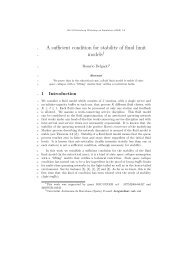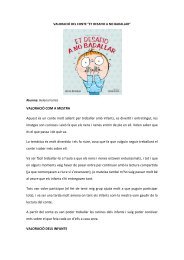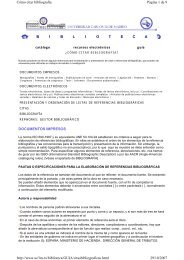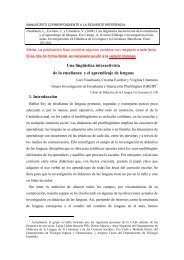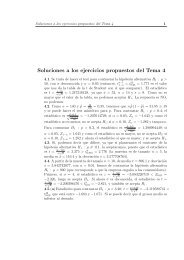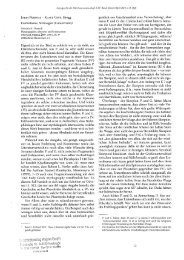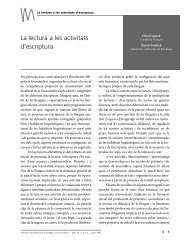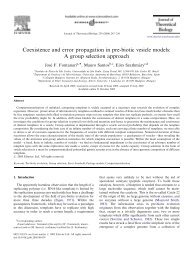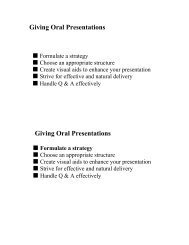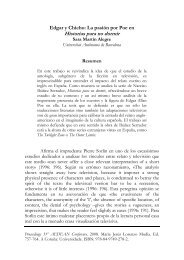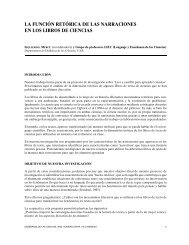please do not cite without permission from the authors
please do not cite without permission from the authors
please do not cite without permission from the authors
Create successful ePaper yourself
Turn your PDF publications into a flip-book with our unique Google optimized e-Paper software.
opportunities and improve <strong>the</strong>ir competitiveness as against o<strong>the</strong>r countries of<strong>the</strong> Centre and <strong>the</strong>ir respective peripheries.The logic of this strategy includes restructuring <strong>the</strong> relations between <strong>the</strong> EUand its former African colonies known as <strong>the</strong> ACP countries (Africa, Caribbeanand Pacific). These countries were previously organized within <strong>the</strong> successiveLomé Conventions (I–IV). But in <strong>the</strong> year 2000 <strong>the</strong> signing of <strong>the</strong> CotonouAgreement opened <strong>the</strong> way to a series of changes to <strong>the</strong> previous structure,leading to <strong>the</strong> signing of Economic Partnership Agreements (EPAs). Thesewere supposed to pave <strong>the</strong> way for <strong>the</strong> future establishment of large free tradezones between <strong>the</strong> EU and various already established regional groups inSub-Saharan Africa (SSA).The drawn-out negotiation processes of <strong>the</strong> EPAs reflect intensedisagreements about <strong>the</strong>ir potential effects. The sou<strong>the</strong>rn region of <strong>the</strong> Africancontinent is representative of <strong>the</strong> polemics which <strong>the</strong>se moves are generating,and of <strong>the</strong>ir negative and positive effects on conditions for development, bothfor individual countries and for <strong>the</strong> region’s most important integration project,SADC (<strong>the</strong> Sou<strong>the</strong>rn African Development Community). Since <strong>the</strong> negotiationsand interim agreements have now gone beyond <strong>the</strong> opening debates in favourof or against <strong>the</strong> proposed new framework, it is a fitting moment to ask whatkind of EPAs, or relations with <strong>the</strong> EU, <strong>the</strong> countries of <strong>the</strong> region shouldpursue in order to accelerate <strong>the</strong>ir development (Goodison, 2009).2. African regional integration and <strong>the</strong> new regionalismRegional initiatives in Africa arose as part of <strong>the</strong> process of gaining politicalindependence; <strong>the</strong>y were supported by a pan African philosophy whicha<strong>do</strong>pted a pragmatic approach towards <strong>the</strong> various regional groupings <strong>the</strong>nunderway, treating <strong>the</strong>m as pieces in a continent-wide jig-saw which woul<strong>do</strong>ne day be completed.Decades of structural adjustment, however, as well as <strong>the</strong> recent impasse of<strong>the</strong> WTO’s trade negotiations, have given rise to a new form of regionalism –one which interprets integration initiatives more as ‘building blocks’ than‘stumbling blocks’ in <strong>the</strong> broader concept of a liberalization which incorporates2




